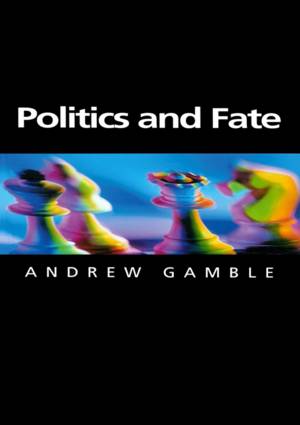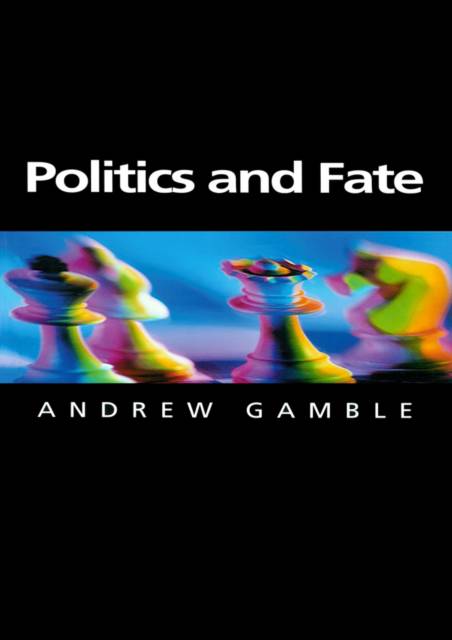
- Retrait gratuit dans votre magasin Club
- 7.000.000 titres dans notre catalogue
- Payer en toute sécurité
- Toujours un magasin près de chez vous
- Retrait gratuit dans votre magasin Club
- 7.000.0000 titres dans notre catalogue
- Payer en toute sécurité
- Toujours un magasin près de chez vous
31,95 €
+ 63 points
Description
Politics was once regarded as an activity which could give human societies control over their fate. However, there is now a deep pessimism about the ability of human beings to control anything very much, least of all through politics. This new fatalism about the human condition claims that we are living in the iron cages erected by vast impersonal forces arising from globalization and technology: a society that is both anti-political and unpolitical, a society without hope or the means either to imagine or promote an alternative future. It reflects the disillusion of political hopes in liberal and socialist utopias in the twentieth century and a widespread disenchantment with the grand narratives of the Enlightenment about reason and progress, and with modernity itself.
The most characteristic expression of this disenchantment is the endless discourses on endism - the end of history, the end of ideology, the end of the nation-state, the end of authority, the end of government, the end of the public realm, the end of politics itself - all have been proclaimed in recent years.
Andrew Gamble's new book argues against the fatalism implicit in so many of these discourses, as well as against the fatalism that has always been present in many of the central discourses of modernity. It sets out a defence of politics and the political, explains why we cannot do without politics, and probes the complex relationship between politics and fate, and the continuing and necessary tension between them.
This book will be essential reading for students and scholars of politics, public affairs and political thought.
The most characteristic expression of this disenchantment is the endless discourses on endism - the end of history, the end of ideology, the end of the nation-state, the end of authority, the end of government, the end of the public realm, the end of politics itself - all have been proclaimed in recent years.
Andrew Gamble's new book argues against the fatalism implicit in so many of these discourses, as well as against the fatalism that has always been present in many of the central discourses of modernity. It sets out a defence of politics and the political, explains why we cannot do without politics, and probes the complex relationship between politics and fate, and the continuing and necessary tension between them.
This book will be essential reading for students and scholars of politics, public affairs and political thought.
Spécifications
Parties prenantes
- Auteur(s) :
- Editeur:
Contenu
- Nombre de pages :
- 144
- Langue:
- Anglais
- Collection :
Caractéristiques
- EAN:
- 9780745621685
- Date de parution :
- 22-12-00
- Format:
- Livre broché
- Format numérique:
- Trade paperback (VS)
- Dimensions :
- 136 mm x 189 mm
- Poids :
- 154 g

Les avis
Nous publions uniquement les avis qui respectent les conditions requises. Consultez nos conditions pour les avis.






